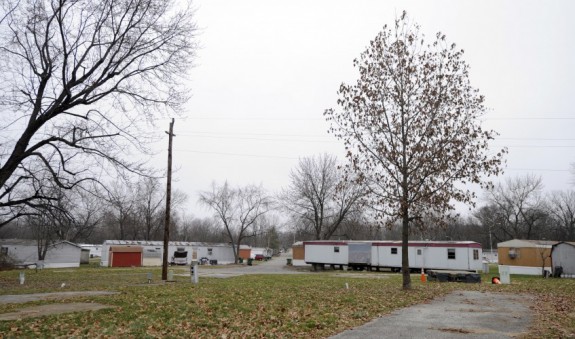
A recent example of this took place in Greenwood, Indiana. Center Grove Estates has received more complaints than any other neighborhood in Johnson County – 10 since 2013 – as reported in the local Daily Journal.
One resident, Debra Rice, said “When I turn on my faucet, the water often smells like sewage.”
Another resident said that she buys all of her water, doesn’t shower at home and often takes her clothes to a laundromat.
Residents have been told to boil their water to kill any possible germs as decades-old water pipes break, are repaired and then break again in a different location.
The Mercury News tells MHProNews that in Pennsylvania, the owner of 70 manufactured home communities was fined for drinking and waste water violations at many of its properties. GSP Management Co., which also owns manufactured home communities in Delaware and Virginia, signed a $1,339,000 consent decree with the Pennsylvania Department of Environmental Protection and the federal Environmental Protection Agency.
Such water, sewer and health issues have led to some high profile cases and ligation, one of which we’ve tracked, linked here.
What can be done?
MHProNews contacted a supervisor of a property that is at least 3 decades old for some off the record comments on such issues. When asked about the septic system at their property, the 16 year resident responded, “it is rare that we ever have any septic tank problems. I think the secret is to have good maintenance.”
“We pump about four tanks every month (clean out), and we have a total of 210 lots,” the supervisor of the clean, appealing and well run community continued. “They (the owners) have complete septic systems that include a drain field. One-third of the homes have an area of grass where liquid runs into a big field. We do not have any problems.”
He concluded with some common-sense advice used by many MHC owner/operators, “Although we allow garbage disposals, we ask residents not to run grease through them.”
Certainly in some cases, it seems that MHC owners have the financial ability to maintain their property. When there may be fiscal problems that precludes repairs, some owners might consider turning to solutions like taking on a partner. Another option may be to work out an arrangement to exit via an ROC agreement that could include upgrades needed as part of the transaction. Something similar can be done with private investors, who can commit to improvements after their purchase of a troubled MHC is completed.
What is certain is that the MH Industry should seek pro-active ways to address such issues. There is no hiding from them. The negative media arguably costs everyone, including those residents and other community owners.
In a trillion dollar a year housing industry, where new MH sales in 2014 are estimated at retail to total only some $4.2 billion, who knows how many billions in more sales could be made by providing positive solutions to negative news stories? ##
(Photo Credits: Scott Roberson, Daily Journal)


























